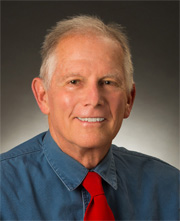
ON MEMORIAL DAY, REMEMBERING AN ACE PITCHER AND WAR HEROBy JOE GUZZARDI May 26, 2021
Spahn’s 363 career wins are the most of any left-hander (he won 75 games after his 40th birthday), and he dominated during the modern post-1920 era, an exceptional achievement since he didn’t win his first game until age 25. He is legitimately among the top ten pitchers in baseball history, and many of Spahn’s achievements and records will never be matched. Spahn often joked with scribes about his pitching arsenal – fastball, curve, circle curve, slider, screwball, knuckleball and change-up which he delivered overhand, three-quarters motion or sidearm, and at speeds ranging from 75 MPH to 90 MPH. In all, Spahn could fool batters with an assortment of 40 different pitches. But Spahn said that despite his deep bag of tricks, he only needed two pitches – “the one they’re looking for and the one to cross them up.” On July 2, 1963, pitching for the Milwaukee Braves, the 42-year-old Spahn faced the San Francisco Giants’ Juan Marichal, 25 years his junior. Sixteen innings later, and after four hours and fifteen minutes, both eventual Hall of Fame pitchers were still toiling away. Giants’ manager Alvin Dark wanted to pinch hit for Marichal in the 13th inning. But an outraged Marichal, who threw 227 pitches that night, refused: “A 42-year-old man is still pitching. I can’t come out!” During WWII, Spahn showed the same determination and grit that foreshadowed his extraordinary baseball career. At the war’s outbreak, he enlisted in the Army, and received combat engineering training in Camp Gruber, near Tulsa, Oklahoma. Two years later, Spahn arrived in France as part of the 1159th Engineer Combat Group’s 276th Battalion, where he was assigned to repair Nazi-demolished roads and bridges. Spahn fought in and was injured during the Battle of the Bulge and at the Ludendorff Bridge. Defending the bridge, vital to the allies, Spahn was struck in the foot by incoming shrapnel that surgeons later removed. Spahn remembered that when the day’s fighting ended, he went to sleep with his feet frozen, and woke up with them still frozen. Spahn deflected praise for his bravery, later saying he served with “a tough bunch of guys. We had people that were let out of prison to go into the service…. they were tough and rough and I had to fit that mold.” Knowing that Nazi soldiers often disguised themselves in U.S. Army uniforms, Spahn’s unit developed a plan to weed out imposters. If a suspected Nazi couldn’t name the Brooklyn Dodgers shortstop, Eddie Stanky, the fraud’s fate was sealed. The most decorated baseball player in WWII, Spahn earned a Bronze Star, a Purple Heart and a presidential citation. Spahn’s war heroism cost him three full seasons and 400 wins. But, career-wise, Spahn viewed his war experiences positively. “After what I went through overseas, I never thought of anything I was told to do in baseball as hard work,” Spahn said. “You get over feeling like that when you spend days on end sleeping in frozen tank tracks in enemy-threatened territory. The Army taught me what’s important and what isn’t.” True heroes, Spahn added, never returned. As Spahn continued to pitch effectively year after year, his long-time nemesis Stan Musial predicted that the Braves’ ace would never get to the Hall of Fame because “He won’t stop pitching.” But Spahn’s career finally ended after the Braves sold him in 1964 to the New York Mets, who soon released him. He played one more year for the Giants in 1965, and at 44-years-old was given his release after the season. “I didn’t retire from baseball. Baseball retired me,” Spahn said. Spahn pitched a handful of games in the early 1970s for the Mexico City Tigers and for the AAA Tulsa Oilers before spending a few tumultuous seasons as a pitching coach for the St. Louis Cardinals, the Cleveland Indians and in the Los Angeles Angels minor league system. By then, Spahn was outspoken about his dislike for air travel, long-haired players and designated hitters. In 1973, the Hall of Fame inducted Spahn, who joked that his career lasted so long that he was the only man in baseball history to play both before and after Casey Stengel was deemed a genius. In 2003 Spahn, by then wealthy from his 2,000-acre Oklahoma cattle ranch and oil leasing, died in Broken Arrow from multiple medical complications. Numerous posthumous awards followed, including statues of Spahn in Oklahoma City and Guthrie, Oklahoma that celebrate the war hero and his intimidating high-kick motion.
Representations of fact and opinions in comments posted are solely those of the individual posters and do not represent the opinions of Sitnews.
|
||||
